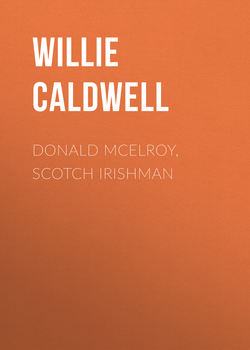Читать книгу Donald McElroy, Scotch Irishman - Caldwell Willie Walker - Страница 8
CHAPTER VIII
ОглавлениеThere was little time for moping after we got back to headquarters, for on the very next day, Colonel Morgan issued orders to his captains to get their companies in marching order, and a few days later we filed out of camp in double column, bands playing, colors flying, and our faces northward. The men cheered us as we passed, for Morgan's rifle rangers were famous by this time, and were always greeted vociferously.
General Gates gave us an enthusiastic welcome when we came up with him, lying intrenched along the Hudson River from Stillwater to Halfmoon; and from the first he paid us the compliment of giving us the positions of greatest danger and responsibility, issuing a command that we were to receive orders from himself alone. It was ours to do most of the scout and picket duty during the three weeks that the British army waited on the opposite bank of the river about thirty miles above us, their rear protected by Fort Edward.
Burgoyne wearied presently of inaction, and determined to wait no longer for Lord Howe's continually delayed reinforcements. He began, too, to suspect that his position was fast becoming a critical one, for news now reached him that the forces of Baum and St. Leger had been destroyed at the battle of Oriskany, and that the attack upon Fort Stanwix had failed, so that the blow from the west could no longer be counted on; the New England militiamen were gathering in force in his rear, and his Indian and Canadian allies – frightened it was said by the report that Morgan's rifle rangers had joined Gates – daily deserted him. There was no alternative left to General Burgoyne but to cross the river and attack Gates, ere this time well fortified, by the skill of Kosciusko, on Bemis Heights.
For six days longer, Burgoyne hesitated, or awaited reënforcements. On the morning of September the nineteenth, one of the outlook, stationed in a tree top, reported a movement of Burgoyne's army which indicated a concerted rear and front attack upon our position. General Gates decided to await the attack behind our fortifications; but Arnold, who commanded our left wing, argued vehemently in favor of a charge upon Burgoyne's advance column, and at last won Gates' consent that he should lead Morgan's riflemen, and Dearborn's infantry against the approaching enemy. The riflemen were given the lead, and we fell upon Burgoyne with telling energy, Morgan all the time exposing himself recklessly, and shouting encouragement to his men above the incessant crack of their rifles, and the responsive roar of the enemy's guns.
It was a picture worth seeing – our regiment in action, their tall commanding figures in their huntsmen's garb scattering or forming as the ground suggested, and each man firing as coolly as if he had nothing more than a brace of partridges in range.
We had been but a short while in action, when General Frazier turned eastward to help General Burgoyne; and Riedesel, seeing Burgoyne was hard pressed, hurried up to his assistance from the river road, along which he was marching to attack Gates' position, in front, while, as they had planned, Generals Burgoyne and Frazier should simultaneously attack our position in rear. We had, therefore, successively diverted the entire force, marching to charge Bemis Heights, and fought, with our three thousand backwoods riflemen and raw infantry, four thousand of the best troops in the British army, led by their bravest and most skilled officers.
The fight was waged with desperate determination on both sides for two hours, while Arnold and Morgan galloped hither and thither, animating the men by their voice, presence, and example. Again and again Arnold sent couriers to Gates begging for re-enforcements, and assuring him that with two thousand more men he could crush the army of Burgoyne. But the self opinionated Gates, who preferred to lose by his own judgment, rather than win by any other man's, sat calmly in his tent, watching the fight below, and steadily refused us assistance. In defiance of his narrow stupidity Arnold fought on till dark, and though Burgoyne was left in possession of the battle field, he had lost heavily, and his attack upon our position had been foiled. We, also, had lost heavily, and of our brave riflemen far more than we could by any means afford to spare.
